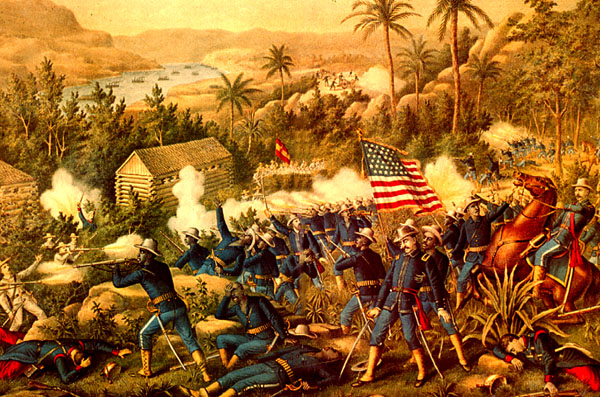 Okay, so this story is kind of repulsive and certainly won't make you hungry, but it's a part of food history so here goes:
Okay, so this story is kind of repulsive and certainly won't make you hungry, but it's a part of food history so here goes:In the weeks immediately following the Spanish-American War, stories began to surface about serious problems in the United States Army's food supply. In the ensuing federal investigation, General Nelson Miles testified that he had recommended to Secretary of War Russell Alger that cattle be purchased in Cuba and Puerto Rico so that American troops stationed overseas would have fresh beef to eat.
But for some reason this was not done. Instead, thousands of tons of canned beef were shipped from the mainland for our troops to eat. Soldiers later gave sickening descriptions of the beef, describing it as “putrefied,” “extremely nauseating” and totally “unfit for human use.”
Newspaper and magazine articles about the scandal stirred up so much public outrage that the Secretary of War resigned at President McKinley’s request. Although no other disciplinary actions were taken, some historians say that the “Embalmed Beef Scandal” contributed in part to the passage of the Pure Food and Drug Act of 1906 which prohibits the manufacture, sale, and distribution of adulterated food products.
The United States, of course, emerged from the Spanish-American War as a world power with an overseas empire that included not only Cuba and Puerto Rico but the Philippine Islands, as well. The rampant patriotism unleashed by the war was on ample display at a gala celebration held in McKinley’s honor during a tour of the South at the end of 1898 and on an extended trip to Boston two months later.
The highlight of the Boston trip was a "mammoth banquet" held at the Home Market Club in Mechanic’s Hall, where nearly 2,000 guests dined on salmon, capon, and fillet of beef after McKinley delivered an important speech in which he attempted to reconcile the United States’ anticolonial origins with the fighting then raging between Filipinos demanding independence and American forces determined to thwart them.
Near the end of his remarks, McKinley asked Americans to look beyond the "blood-stained trenches around Manila" into the future, when prosperity would have returned to the Philippines. At that time, the president declared, "Filipino children and their descendants "shall for ages hence bless the American republic because it emancipated and redeemed their fatherland, and set them in the pathway of the world’s best civilization."
